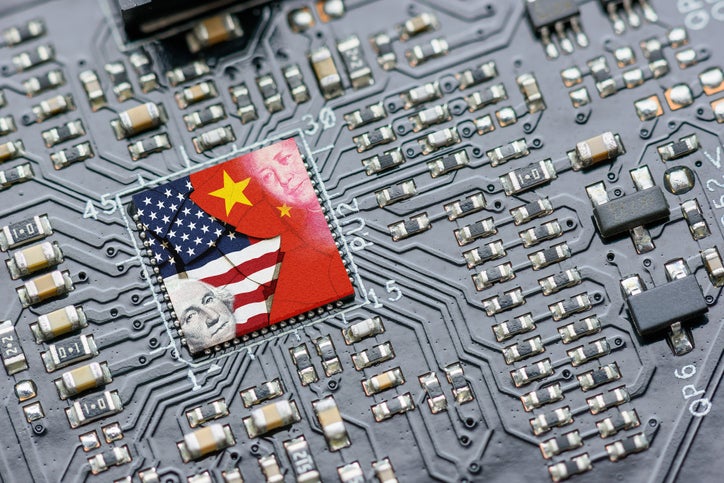
The US has announced it is considering further restrictions on the export of artificial intelligence (AI) chips to China, as trade tensions continue to mount between the two countries.
Companies such as Nvidia, AMD and Micron will no longer be able to ship their advanced chips as early as July, the Wall Street Journal reported.

Access deeper industry intelligence
Experience unmatched clarity with a single platform that combines unique data, AI, and human expertise.
The report stated that the US Commerce Department could “stop the shipments of chips made by Nvidia and other chip makers to customers in China and other countries of concern without first obtaining a license.”
Last year, Nvidia reported they it been asked by US officials to stop sending two of its most advanced chips to China.
To work around the sanctions, the company tweaked its leading H100 chip and also began offering a new AI chip called the A800 to China.
This new set of curbs will put a blanket ban on all of Nvidia’s chips, allowing no way for the company to work around the sanctions.

US Tariffs are shifting - will you react or anticipate?
Don’t let policy changes catch you off guard. Stay proactive with real-time data and expert analysis.
By GlobalDataShares in Nvdia have fallen more than 2% since the announcement.
Chinese companies in the AI space have seen their shares fall as well. Tencent, which recently announced it was building its own AI model, declined 1.58%. Alibaba, that is currently working on a rival to OpenAI’s ChatGPT, saw a decline of 1.6%.
The news comes as global investment in AI fell substantially last year.
The value of AI deals plummeted to $72.9bn in 2022, a dramatic drop from $127.2bn in 2021, according to research firm GlobalData.
Investment in AI had been on a mostly upward trajectory for the past decade. In 2013, deals in AI totalled just $1.6bn.







